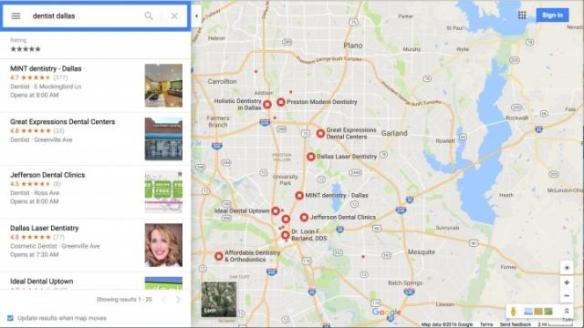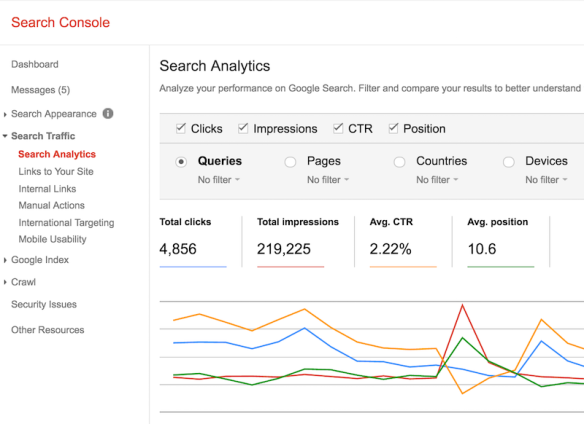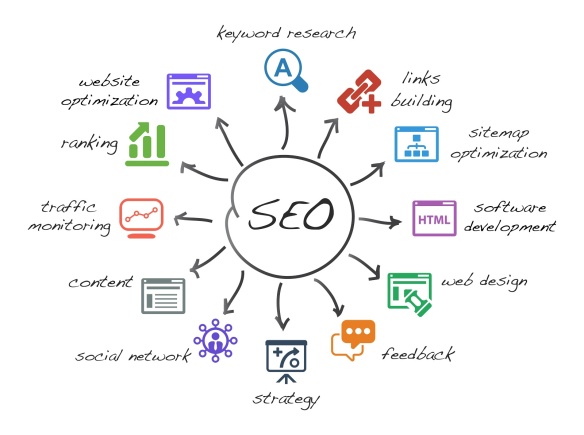Experiencing fluctuations in organic traffic and rankings? Here is a list of factors to check and how to address them.

Whether you’re a seasoned SEO or someone who runs your own business, you know there are fluctuations in your organic traffic, but you may struggle to pinpoint the root cause.
Organic search, unlike its paid counterpart, comes with a unique set of challenges in diagnosing a decline in traffic and conversions. There are some obvious places you can mine for insights (Google Analytics, Google Search Console), but other factors at play can be harder to quantify.
From basic issues to advanced issues to factors that are largely out of your control, following is a list of things to check for when diagnosing major fluctuations in organic traffic or search engine rankings. By examining both internal and external factors, you can start to piece together the puzzle.
Basic issues
1. Your pages aren’t indexed
Conduct a quick Google search using “site:yourwebsite.com” to make sure your pages are actually indexed. If you’re noticing that critical pages aren’t appearing in the SERPs, you’ve likely found the culprit. Check your robots.txt file to make sure you haven’t blocked important pages or directories. If that looks good, check individual pages for a noindex tag.
2. Bot filters
Are you currently excluding all known bots and spiders in Google Analytics? If not, you may be experiencing inflated traffic metrics and not even know it. Typically, bots enter through the home page and cascade down throughout your site navigation, mimicking real user behavior. One telltale sign of bot traffic is a highly trafficked page with a high bounce rate, low conversions and a low average time on page.
While it’s best to create a custom dimension for filtering out bots, applying the generic bot filter is a good place to start. It’s important to note that filters cannot be applied retroactively, so if you’ve recently turned on this feature, you should be receiving less traffic. Additionally, double-check that you are filtering out your own traffic and IP address.
3. Recent site updates
If you’ve recently modified your on-page copy, undergone a site overhaul (removing pages, reordering the navigation) or migrated your site sans redirects, it’s reasonable to expect a decline in traffic. After reworking your site content, Google must re-crawl and then re-index these pages. It’s not uncommon to experience unstable rankings for up to a few weeks afterwards.
If you’ve changed your URL structure or removed pages from your site, it’s important to have a 301-redirect strategy in place to preserve link equity and avoid a loss of rankings/traffic.
4. URL confusion
Do you have a content strategy in place, or are your efforts more “off the cuff?” Not having a clearly defined keyword map can spell trouble — especially if two or more pages are optimized for the same keyword. In practice, this will cause pages to compete against each other in the SERPs, potentially reducing the rankings of these pages. Here is an example of what this might look like:
URL 1: http://www.mysite.com/cakes/raspberry-chocolate-cake
URL 2: http://www.mysite.com/flavors/chocolate-raspberry-cake
Fortunately, if you have access to a keyword tracking tool, you should be able to see a day-by-day breakdown of which URLs Google chooses to rank for that particular keyword. With a little time and effort, you should be able to remedy the situation.
Advanced issues
5. Structured data markup
Implementing structured data markup (such as that from schema.org) might seem like a one-time project, but that “set it and forget it” mentality can land you in hot water. You should be monitoring the appearance of your rich snippets on a regular basis to ensure they are pulling in the correct information. As you change the content on your website, this can alter the markup without warning.
Likewise, depending on your back-end merchandising setup, products could be triggered to show “out of stock” schema if one color variation goes out of stock. As you can imagine, this can wreak havoc on your click-through rates and lead users to purchase from your resellers — or worse, your competitors!
6. Promotional cadence & the “Sale Hangover Effect”
Did you run a big promotion last year, such as a sample or flash sale? Did it coincide with the same week this year? If not, your year-on-year comparison will be skewed.
If so, were your past promotions equally enticing? Did your brand launch a new product line or offer limited-time products? These factors alone are difficult to measure, and we’re not even accounting for PR efforts, which will also impact your organic metrics.
There is also significant evidence to suggest that the “Sale Hangover Effect” is not just a phenomenon. It deals with two factors: share of mind and share of wallet.
Tim Kilroy, co-founder of AdChemix, explains this anomaly:
Consumers only have so much attention and so much money — and for each, they set a “budget” for how much they want to spend with the brands that are important to them. Consumers invest their attention and money into big promotions. Typically, big promos have big results for the retailer, but the flip side is that the promo has emptied the consumers’ budget for attention and money. If the promo is big enough, it even entices some consumers to overspend a little bit (or a lot). When consumers have expended or exceeded their budget, they tend to engage with your brand less. They become immune to marketing messages and spend fewer dollars.
7. Price point & product depth
As a savvy digital marketer, you’ve inevitably nailed the four Ps: price, product, promotion and place. However, a well-planned strategy means nothing without the fifth P: people.
Here is a common narrative that many e-tailers can relate to: You identified your “sweet spot” in the marketplace and know that charging above this threshold leads to price sensitivity. Your core products drive volume — which allows you to achieve amazing growth. Then, one day, your focus shifted. Maybe you stopped churning out iterations of your best sellers, or maybe you tried to focus on your higher-revenue products — all the while alienating the people who liked your previous offerings.
This quickly turns into a “chicken-and-egg” situation. Are fewer people coming to your site due to poor visibility in the SERPs? Or have you shifted your product focus, and is that why consumers are no longer interested in your brand? For a quick check, look at Google Search Console data, and pull positions and clicks by page. If position is staying relatively stagnant, this means your brand is not losing visibility in the SERPs, and there may be a bigger issue at play.
Uncontrollable factors
8. Being outranked by resellers & affiliates
For maximum exposure, you may have launched an affiliate program or have several resellers under your belt. This is typically a non-issue — until, of course, your resellers start to outrank you for branded keywords. While this might not derail your revenue goals, it’s a sure bet you’re losing traffic to these sites.
9. New Google ad placement
With Google killing off right-hand rail ads, many brands may be seeing more of their direct traffic being cannibalized by paid search ads. It will be some time before we’re able to quantify the full effect, but you should be mindful of this.
10. Industry trends & waning brand interest
With the exception of crude oil and Picassos, very few industries are “recession-proof” and experience an inelastic product demand. Look at how your competitors are faring, and see if they’re experiencing the same problems. While you should take Google Trends data with a grain of salt, looking at the bigger picture may help provide some clarity. I’d suggest taking this a step further by conducting trends research and reading industry reports.
Brands hold a wealth of customer information that may often not seem applicable to SEO — and many times, it’s not. However, if you’re working with an SEO agency, sometimes sharing this knowledge can provide the missing piece to the puzzle. Knowing something as simple as “Consumer preferences are shifting around the color black” could help explain why your traffic is down if your products are often paired with black shoes. Sometimes it’s as easy as connecting the dots.














